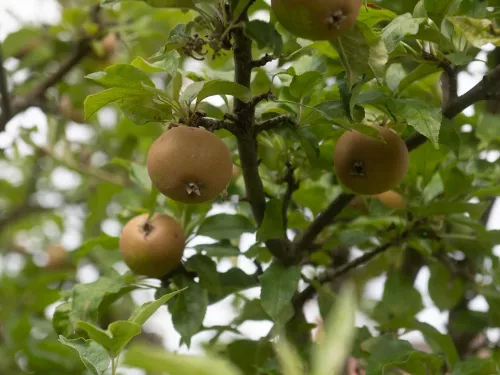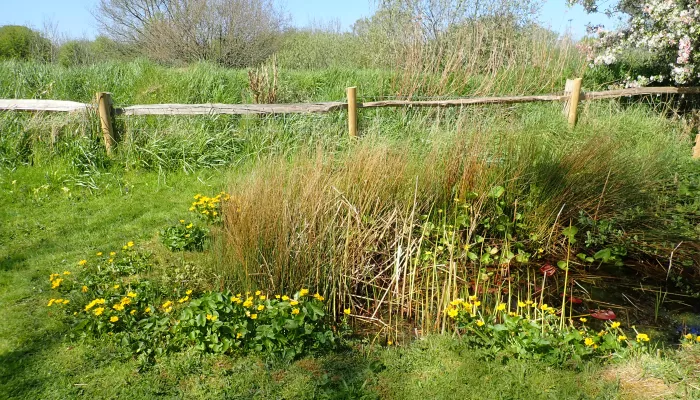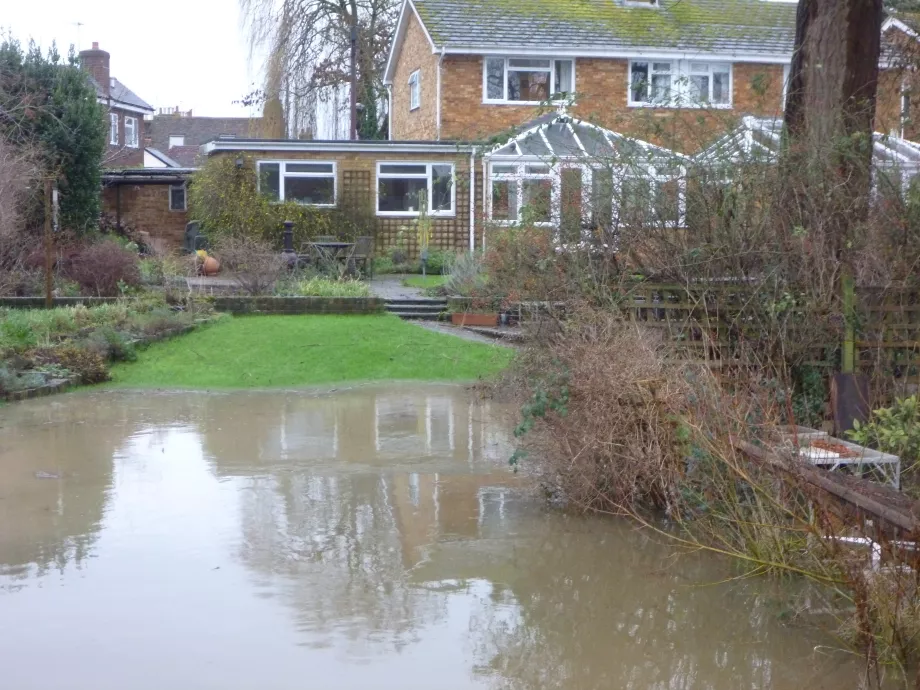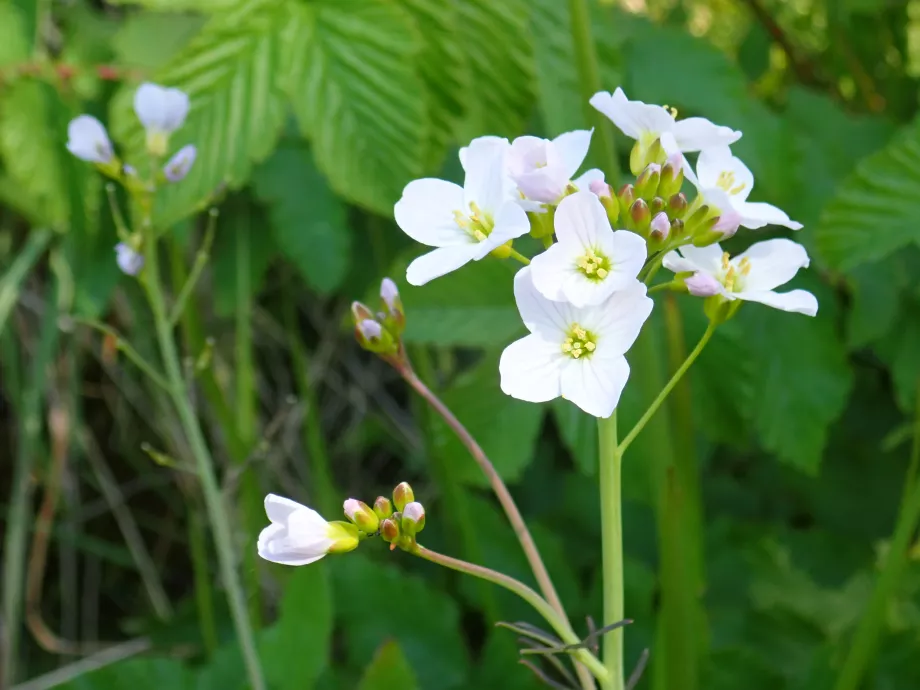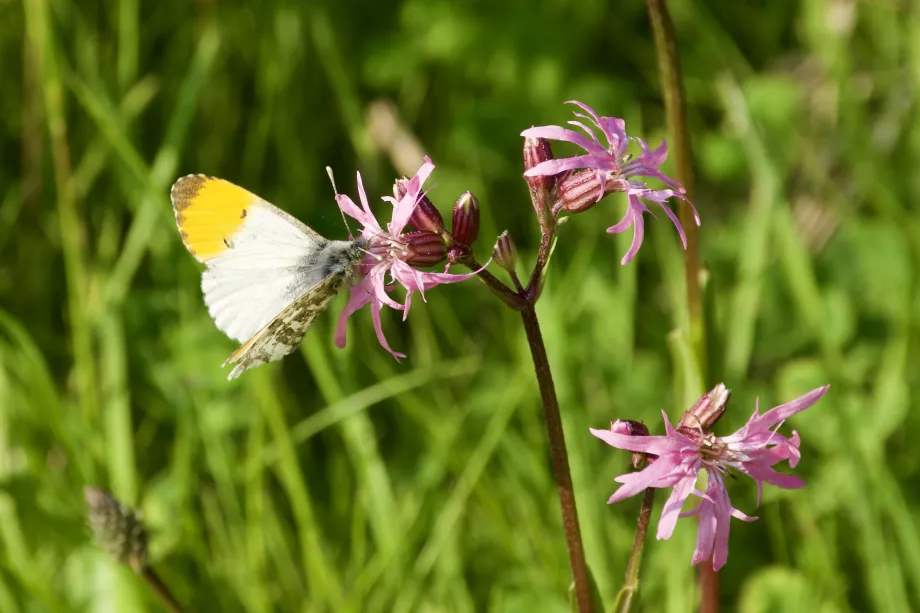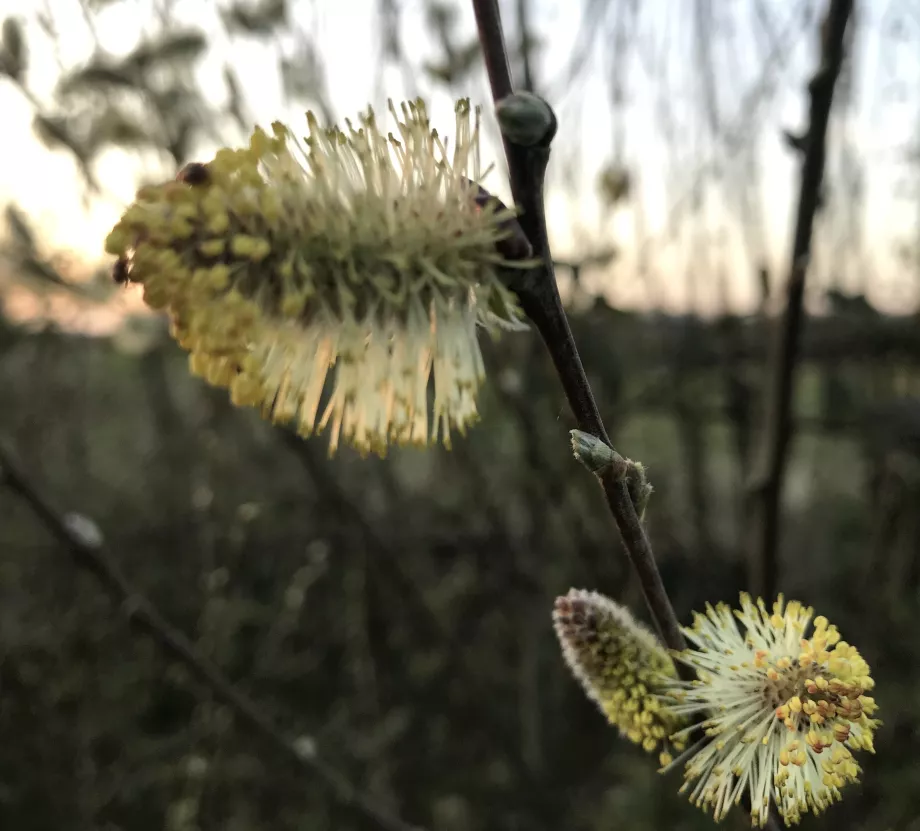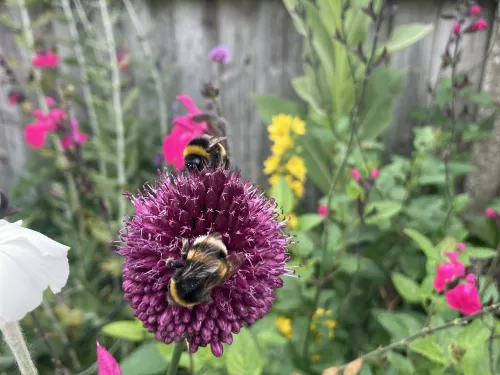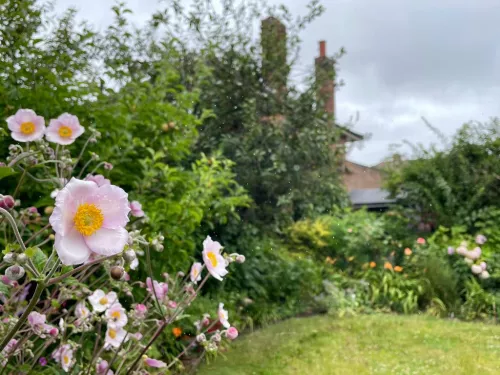Marsh-marigolds were also known as Kingcups and Mayflowers. The Marsh-marigold also has more comic-sounding names, such as Molly-blobs, Gollins and the Publican. The abundance of names reflects the fact that these plants were once a common sight; sadly, they have become more scarce as so much land has been drained over the last century. It is good to make room in our gardens for these lovely plants, particularly as they are so valuable for early insects. Marsh-marigolds provide early pollen and nectar, and Lady’s-smock is a food plant for the larvae of the Orange-tip butterfly, along with other cruciferous plants, such as garlic mustard and honesty.
Ragged-Robin (Lychnis flos-cuculi) is another damp-loving plant that has declined owing to drainage. Its delicate blooms add grace to any garden during the summer and it is also included in the RHS Plants for Pollinators: British wildflowers list.
